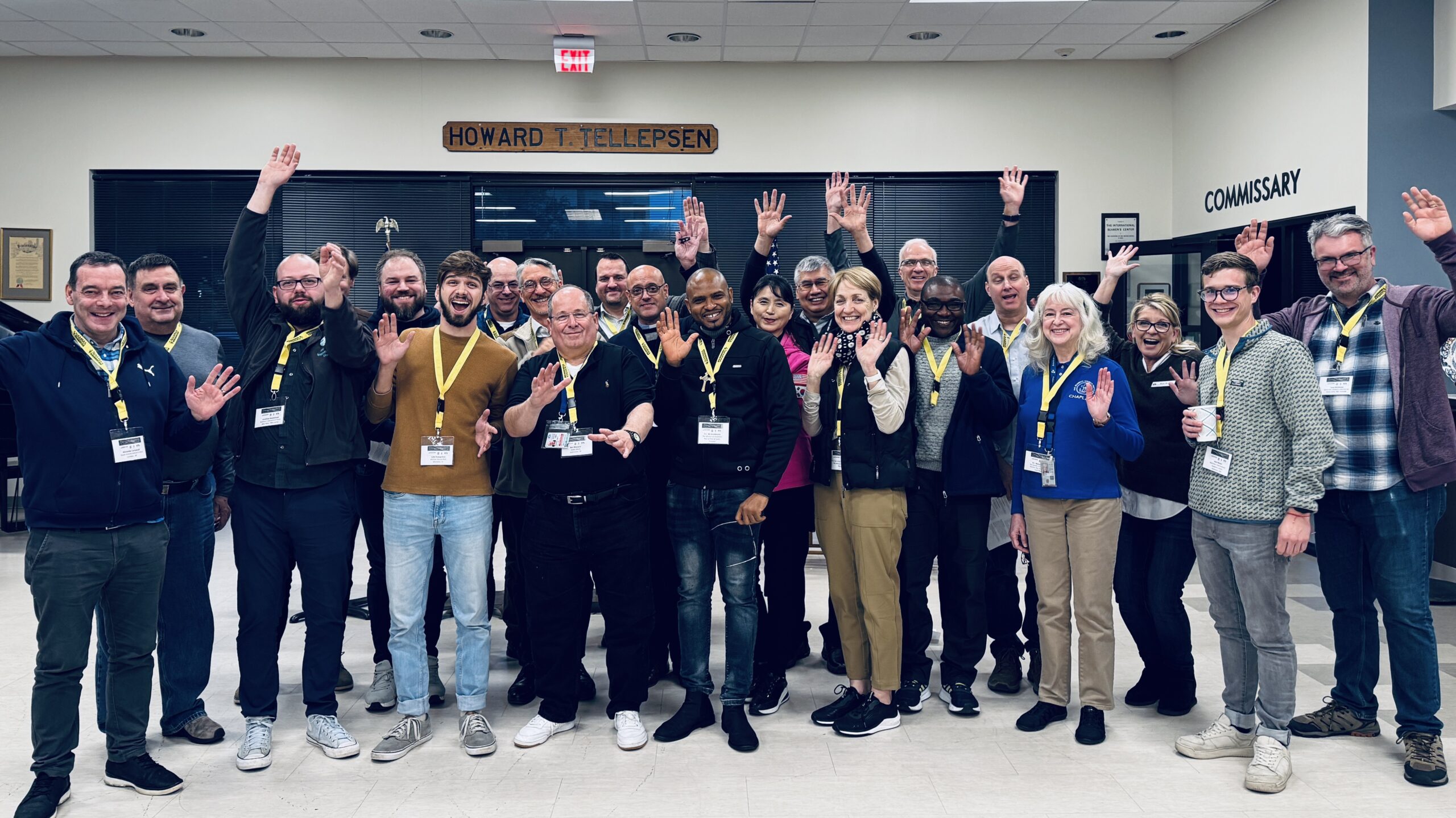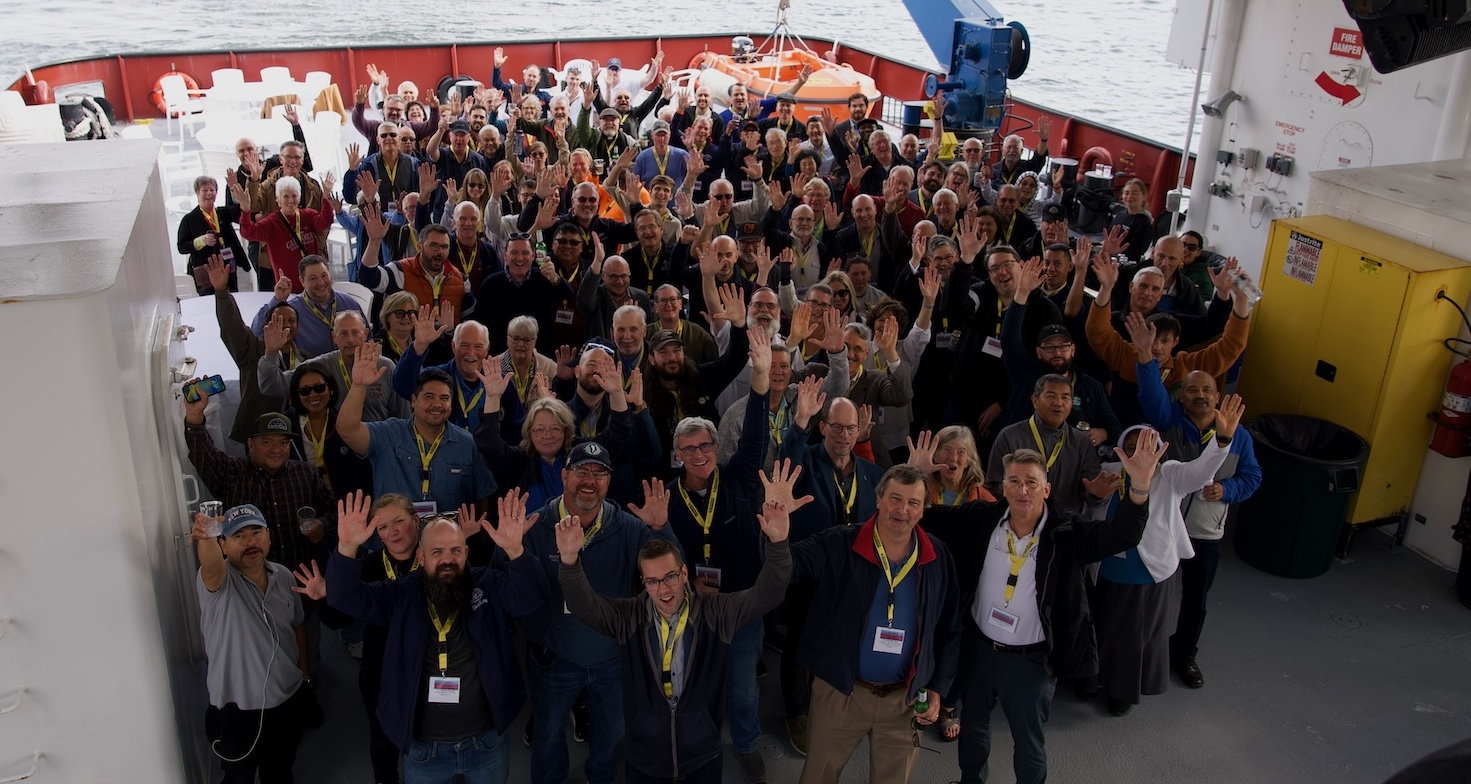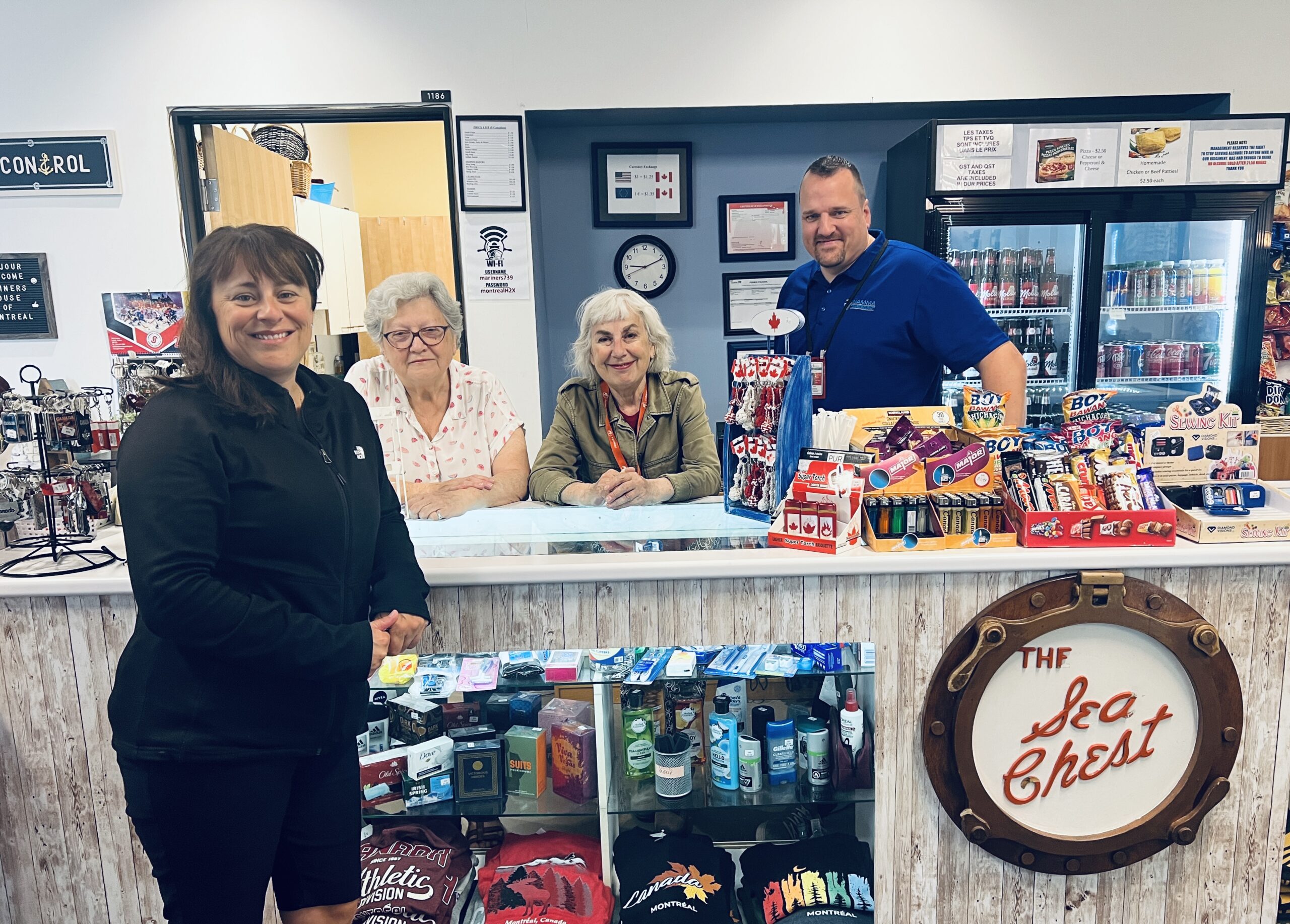While crinkled tinsel hangs in the mess room and a slightly battered artificial tree is pulled from storage, Christmas on ships is a mouse’s crumb compared to the holiday most of us know. But things are changing.
Seafarer centers across North America are currently in one of the busiest giving campaigns of the year. Not raising funds for operating costs with Christmas Galas but organizing to give gifts to strangers.
Home-based knitters and those who sew have worked throughout the year creating cloth gift bags and watch caps for seafarers they will never meet. Jane, a Michigan resident, combs though thrift shops for yarn and fabric for her ditty bag projects. Evelyn organizes her adult Sunday school annually to collect items for the gift bags and collect funds for shipping to get them to a port mission. Like an assembly line, local youth or civic groups partner to fill the ditty bags with the donated items at the 45 participating centers. Large bags and boxes begin to fill to the brim. Finally, ship visitors walk the narrow gangways delivering Christmas cheer to the invisible crews on our global waters. As awareness of seafarers spreads the partnerships increase. Port authorities and Propeller Clubs contribute in the Christmas response.
According to a NAMMA survey of North American port ministries, 71,955 Christmas gifts were given in 2014. In addition, more than 30,000 watch caps were graciously received as a gesture of care and love to those who received little if no gifts while at sea. The reciprocal smiles say it all.
The reality of international seafaring finds more than a million and a half people who live and work at sea away from home during a holiday of family gatherings and renewed connections with loved ones. When at sea, there is no exciting Christmas morning with children or holiday wrappings strewn, unless it is on an electronic device, which although better than postal services, falls short of human touch.
Jeanie Wodka works at Canaveral Port Ministries where 300 Christmas care packages were delivered to cargo ships in 2018. Often the gifts are provided to the captain and dispersed on Christmas Day when seafarers only ponder home beyond the miles of water surrounding them.
“The holidays are a difficult time. Seafarers are worlds away from home. We want to show the love of Christ to them. We find Christmas a natural time to give,” said Wodka. “Seafarers are very grateful.”
Ralph Anthony Antonio, chief cook on the MT-Eco Seas is in his eighth year at sea. He explains his experience with the Christmas gifts this way:
“I am delighted. It is a good remembrance. For my opinion, if somebody remembers me, even if there is no gift it’s already been settled as a gift.”
Indeed, there is a symbolic value to the gifts given at Christmas time according to Executive Director, Ken Hawkins of The Mission to Seafarers – Seattle.
“The seafarers recognize hand-made watch caps as a symbol that we have invested ourselves, time, love and attention toward them,” said Hawkins. The nearly 100 hats we give say that “someone really does care while they are so far from home. We gave three big burley Ukrainian seafarers ditty bags once. They started to cry. They are isolated in a foreign country and we are family to them.”
Christmas gifts are purposefully practical too.
Jhake Galas, a Filipino seafarer is in his sixth year at sea. He often sails in weather contrary to his homeland.
“When we received gifts at Christmas,” he recalls, “it was really helpful to us seafarers, especially we are sailing on cold seas. We were so happy and excited to open those gifts, especially I’ve known that most of the gifts are handmade by the volunteers. Receiving such nice gifts makes us feel loved, cared for and remembered despite of how far we are from our family.”
Hawkins notes that this invisible workforce benefiting the world of commerce is trading their lives for their wages. The isolation at work and in their off-duty time is an occupational hazard to a chronic degree. Therefore, a cross-section of staff, interns and religious representatives working jointly in the Port of Seattle all share in Christmas on board by offering fellowship, simple prayers or mass when requested to enhance the crew’s Christmas experience.
He pins down the crux of the Christmas giving programs.
“We are addressing poverty of the spirit and hunger of the soul,” he comments from deep within.
The Mission to Seafarers – Seattle’s annual ditty bag packing event produced 600 bags filled with practical items by 100 volunteers from various service groups and individuals. The Seattle outreach holds the view that we need seafarers. Since 90 percent of the world’s goods travel by sea, our lives would be radically different without them. Yet, the general public is often blind to their contribution and the associated sacrifices.
Others concur that a wide-angle view of the seafarer’s life is wise to consider.
“I don’t see ditty bags as a Christmas gift,” said Samida Johnson, a Tuesday night volunteer in a Florida center. “I see them as a thank you gift.
Yes, these men work and earn a wage greater than those in their homeland, but their wages go home to care for their immediate and extended families. Look at what their families give up. Look at their sacrifice to work at sea. It is on their faces when they skype with their young children. A ditty bag is a small gift to say thank you for all they do to care for their families.”
Those who work in seafaring ministries are keenly aware that Christmas magnifies the loneliness and isolation of the occupation. The efforts made to curb this deficit of connection are a matter of the heart.
Johnson was introduced to the world of seafarers 15 years ago when a chaplain spoke to her congregation. While some idolize the role of those who leave the home church to serve as missionaries aboard or give reasons why they cannot, he posed the question, “What if the mission field comes to you? What will you do? It (seafarer missions) is in your own back yard.”
The following Tuesday Johnson showed up at the local seafarer center to make a difference. Her offerings continue today.
“If there is a ship, I am there,” Johnson said.





